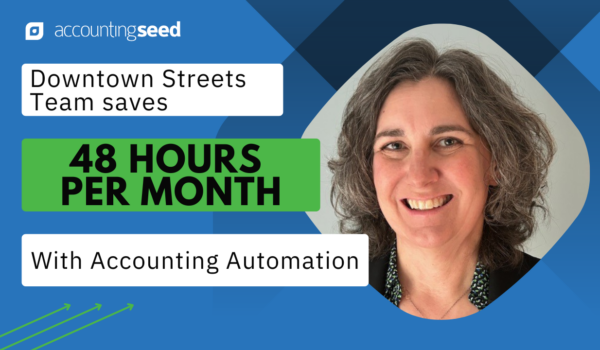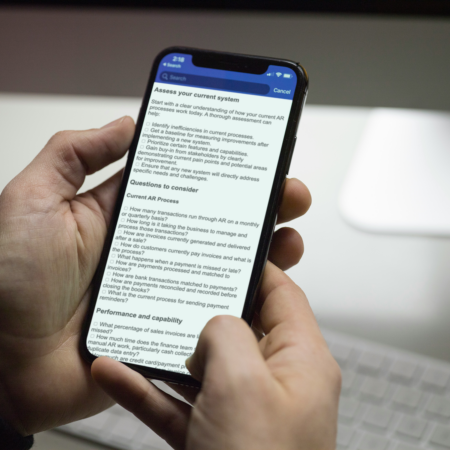
The nonprofit puts time back in their hands to focus on what really matters: combating homelessness.
––––––
Homelessness is a devastating and complicated issue plaguing many areas within the United States. According to United States Interagency Council on Homelessness, 1.25 million people experienced homelessness in 2020 alone—with California accounting for 28% of the homeless population in 2023. Overcoming homelessness doesn’t have a simple, one-size-fits-all solution, but organizations like Downtown Streets Team are paving the way to not only combat homelessness once and for all, but also to restore dignity to those experiencing it.
Based in California, Downtown Streets Team was founded in 2005 with little funding but a big dream to help those that are often forgotten and overlooked. Their approach is unique and one that is not seen by many other organizations fighting homelessness.
“Our organization has a secret sauce,” said Marina Peterson, CFO at Downtown Streets Team. “We approach the challenges of people experiencing homelessness from the perspective of the barriers that are put on them to become stably employed and housed in society. Our case management style is very forgiving—we give as many chances as people need.”
On a weekly basis, the team has “success meetings” with people in their programs, bringing them together in community to give support and cheer each other on towards success. Those within programs under Downtown Streets Team are also put into teams to go into various California communities and beautify the downtown areas together—giving them a sense of pride and accomplishment and helping to get people out of a cycle of deprivation.
Today, Downtown Streets Team is in 20 communities across California from Napa to San Francisco to Sacramento to Santa Cruz. Their work continues to make a significant difference, but the team reached the point where their operations needed to scale and work more efficiently.
“The passion that the employees have here is unquestionable. They are out there making an impact and really helping people, but maybe not as operationally efficient as they could be,” said Peterson.
Ensuring Financial Stability and Growth
When Peterson came on board over a year ago, she was tasked with ensuring secure finances and stable growth. Previously, their accounting systems were completely outsourced, taking 60 days (sometimes more) to see a financial statement. As a nonprofit with heavy reliance on government funding, not being able to see, in real-time, if they were under or over budget was a critical component for being financially resourceful and secure.
“The first thing I needed was to be able to trust and have access to information, which is why within the first five months, as a new CFO, I implemented Accounting Seed,” said Peterson.
The nonprofit organization was live with Accounting Seed within 60 days and in the first 90 days of using Accounting Seed, the accounting team uncovered $100,000 in unbilled expenses from the prior year—financials they had no visibility into prior to making the switch.
“I paid for our platform applications within the first 90 days because we had that immediate visibility to where our data was and how it was structured. With Accounting Seed, we don’t have month-end. We have continuous accounting. That’s the kind of visibility we’ve achieved,” said Peterson.
Making the Right Changes with the Right Partner
Peterson worked with Rev4 Solutions to implement Accounting Seed, and noted she chose Rev4 because of their honesty and approach to problem-solving. “I love a partner that will say ‘No’ to me and be real thought-partners in the implementation. Rev4 really understands Accounting Seed and accounting principles in general and made sure we created procedures that were good—taking out pieces that don’t add value anymore.”
In particular, Rev4 helped Peterson take a hard look at the Chart of Accounts where all the transactional data is tagged, ensuring all was set up correctly using GL variables and testing the impact on reporting and analytics. This has improved the way Peterson and team communicate and share data with funders.
For example, the team created specific variables for funding sources. There’s a general fund that is allocated across all business sections and units that Peterson can slice and dice to see by community, department, and program. But, when a certain threshold is met on a large government contract, they can use that fund source as its own reporting variable. In previous positions, Peterson has used solutions like QuickBooks that did not allow for this level of data tagging and analysis—which is crucial to reporting accurately and in a timely manner back to funders.
“I can report specifically on a contract from a vendor across multiple communities, across multiple departments and be able to see exactly where we are within those expenses or within the revenues of that fund. We can see in real time where we’ve spent money within that contract. Not only this, but with Accounting Seed we can change that data view and format into the way the funder wants to see it. They don’t see all the individual line detail and I can keep my General Ledger intact at all times. A huge win.”
Real-time Visibility Makes for Data-driven Decisions
By bringing their accounting system in-house and on the same platform as their CRM, Salesforce, Peterson has been able to not only achieve real-time visibility of actuals and budget, but it’s also enabled all departments to better serve the community.
As CFO, Peterson takes immense pride in ensuring internal departments are building up their own financial literacy—understanding what finances they have to work with and how to become more engaged in creative problem solving and data-driven decision making.
“I also ensure that the accounting staff—I call them ‘budget buddies’—are being that resource partner and not just ‘behind-the-scenes’ accountants. We want them to have the visibility they need to actually partner with our communities and ensure that we are maximizing our contracts and our revenue, and that we can really fulfill those impact measures that we are trying to achieve,” said Peterson.
With Accounting Seed, the accounting staff has the visibility needed to provide support to the surrounding communities, but also can now focus on analyzing the data instead of spending hours processing it manually. According to Peterson, nonprofits are historically known for high levels of manual work due to lack of budget and resources, but she notes she is seeing a major shift in the way nonprofits use their funds to support efficiency.
“It’s not data entry anymore. I don’t want bookkeepers. I want people that understand technology and know how to make decisions with the numbers. And with Accounting Seed, it is a true accounting platform, so you have to know accounting to use it. But in doing so, you understand those principles of how the transactional data works. You’re then able to use that information to make data-backed decisions. I can automate so much now with Accounting Seed, so why have a team? Because it’s beyond that. I need analysts to read the information and make decisions with it,” said Peterson.
Less Time on Reconciliation, More Time on Analysis
By moving to Accounting Seed and automating many of the day-to-day manual processes, particularly those associated with bank reconciliation and reporting, Downtown Streets Team has not only improved data quality and accuracy by 110% but also saved the organization approximately $20,000 annually by bringing accounting operations in-house. Furthermore, the nonprofit is now at a 10-business day close in under one year since moving to Accounting Seed on Salesforce.
“What used to take two days using Excel takes two hours in Accounting Seed for bank reconciliations,” said Peterson. “Now my team can focus on staying on top of our expenses—ensuring that we are spending our contracts correctly, that we are spending in the right budget lines and are able to make budget revisions. It’s made them partners.”
Put Time Back in Your Hands with Accounting Seed
Working with the complexities of homelessness is challenging work, but with Accounting Seed, Peterson and team have decreased the time spent on manual, resource-heavy tasks so they can focus on what really matters: combating homelessness through true partnership with the community.
“Homelessness is very complex, so having the correct tools, like Accounting Seed at your disposal to make your job impactful, and to really be able to see the results and those connections with the communities, I think has changed the way our accounting team sees themselves, as well as how the organization sees accounting. So instead of the accounting people always being the ‘No, you can’t do this’ people, they’ve become partners. It’s changed into a partnership. Now it’s, ‘Maybe we can’t do that today but let’s figure out a way to get there tomorrow.'”
To learn more about Downtown Streets Team and ways to give to the cause, visit https://www.streetsteam.org/.
See Accounting Seed in action
Get a close-up view of how accounting on Salesforce can eliminate the need for costly integrations—and silos of mismatched information—by sharing the same database as your CRM.


